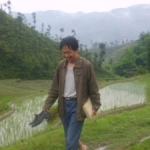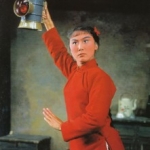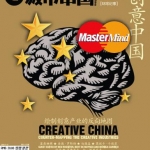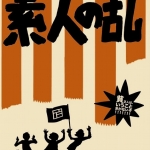Articles tagged with: culture
Chinese Left, Contemporary China, CSG Translations, Husunzi, Rural China »

There are several reason for this sense of helplessness among the peasantry, including the market economy’s disruption of the peasant economy, the irresponsibility of local governments, and peasants’ lack of social capital, but the fundamental reason is the disorganization of rural society. Rural society today lacks cohesion, “like a sheet of loose sand.” Disorganized peasant households, depending on individual strength alone, cannot overcome natural hardships, nor can they face the challenges of the market or encroachments on their interests, and their self-confidence inevitably declines. The source of peasants’ spiritual poverty, therefore, is their lack of their own organization(s), and their loss of collective solicitude. At the same time, urban culture promoting individual competitiveness and interpersonal alienation has flooded into the countryside, further affecting rural culture and worsening peasants’ spiritual poverty.
China Lens, Chinese Revolutionary History »

Mainland Chinese works of art from the “Seventeen Years” period of 1949 to 1966 have been routinely dismissed as propaganda by the same Western scholars and critics who periodically “discover” and celebrate masterpieces of Chinese cinema from the preceding Republican era or the later post-Mao era. This article counters some of the erroneous assumptions underlying the indifference with which these films are regarded by the general public and the hostility that has long been directed at them by sinologists in the Western academy.
Contemporary China, Husunzi »

This issue of Urban China sets out to critique and redefine the idea and practice of ‘mapping’ the creative industries. Foregrounding the experimental process of collaborative constitution, we are interested in the multiple idioms of expression that make creative industries intelligible beyond the blandness of policy discourse. Activist researchers, artists and writers in Europe, Brazil and India have been particularly inventive in combining collaborative techniques of production with social-political critique via media of communication. We see this work as part of the prehistory and global dialogue around how to create new spaces and transdisciplinary knowledges able to negotiate the complexities and politics that attend the economization of culture.
Husunzi »

Tomorrow (Sunday, November 1), from 18:30 to 20:00, Utopia (the broad-left bookstore/ “salon” in Beijing) will host a screening of the Japanese documentary film “Freeters’ Revolt” (《素人之乱》, translated elsewhere as “Amateur’s Revolt”), and a discussion with the filmmaker, freeter activist and second-hand shop owner Hajime Matsumoto (松本 哉), along with Higuchi Takuro (樋口拓朗), billed as the main organizer of the 2008 anti-G8 protests in Japan and researcher at Tokyo University’s Global COE Program. On Wednesday, November 4, a second screening + discussion will be held at the Desirée Autonomous Youth Lab in Wuhan.
Mao Zedong »
…. works at the level of imagination. It is comforting for western readers looking to have the same old story of Mao as tyrant confirmed. But it is successful for more than this: it is the use of imaginative writing that gives the reader an illusion of insight. Whereas scholarly biographies, by necessity, often offer conjecture regarding motives, feelings and emotions, Chang and Halliday seem to possess a crystal ball which allows them to chart the impossible: what Mao thought and felt, even on his death bed. Their poor referencing makes it impossible to tell exactly what they have been told by observers and what they themselves have assumed. We know that their attitude to memory is cavalier. Chang claims to be able to render into English 4 pages of writing in Chinese after just one reading is evidence of this (Mao’s second wife’s letter regarding Mao was seen by Chang in an archive and re-written from memory — an impossible feat!)
